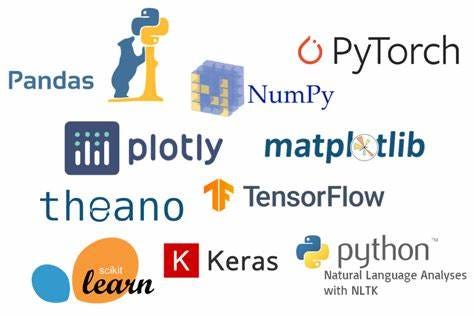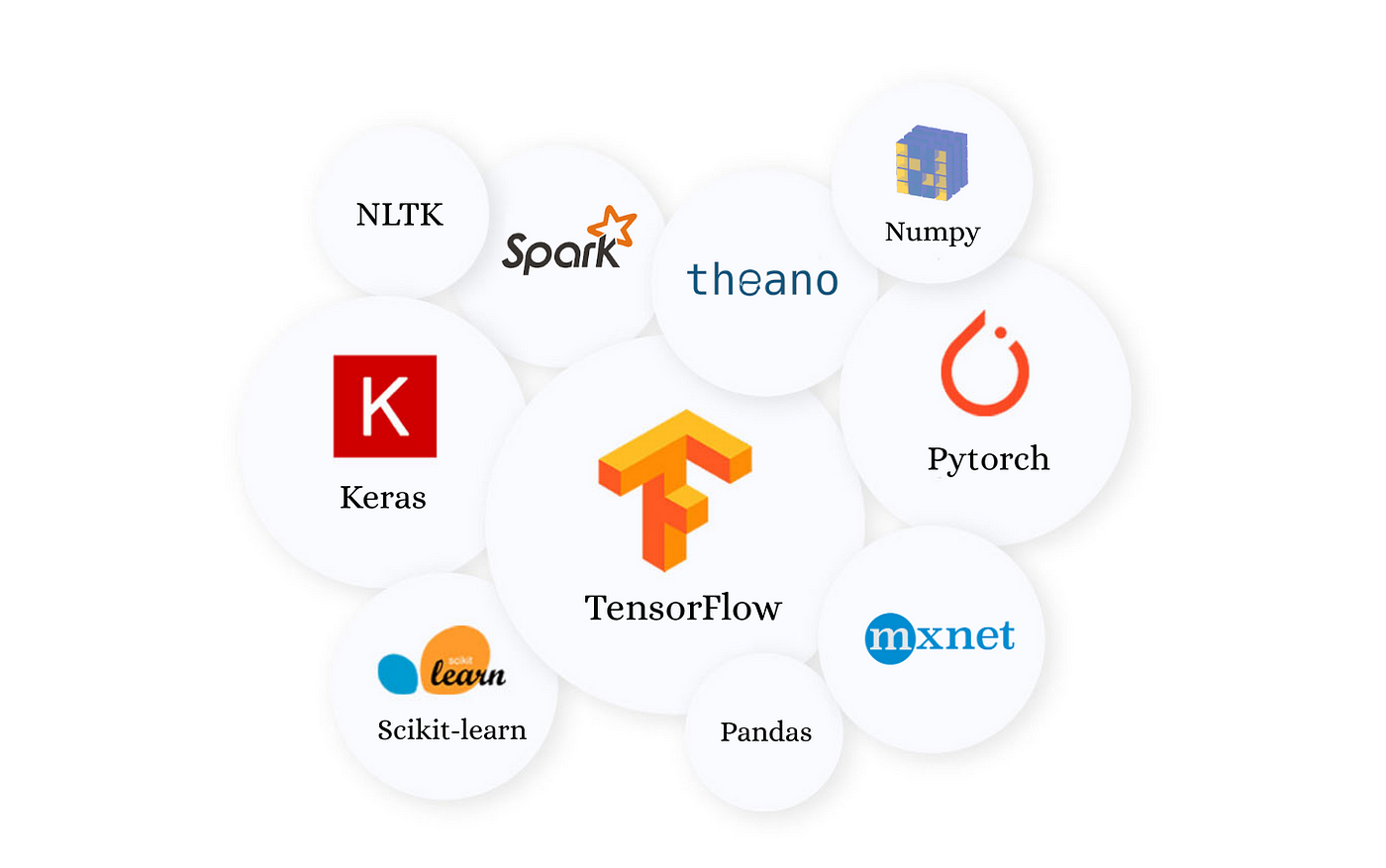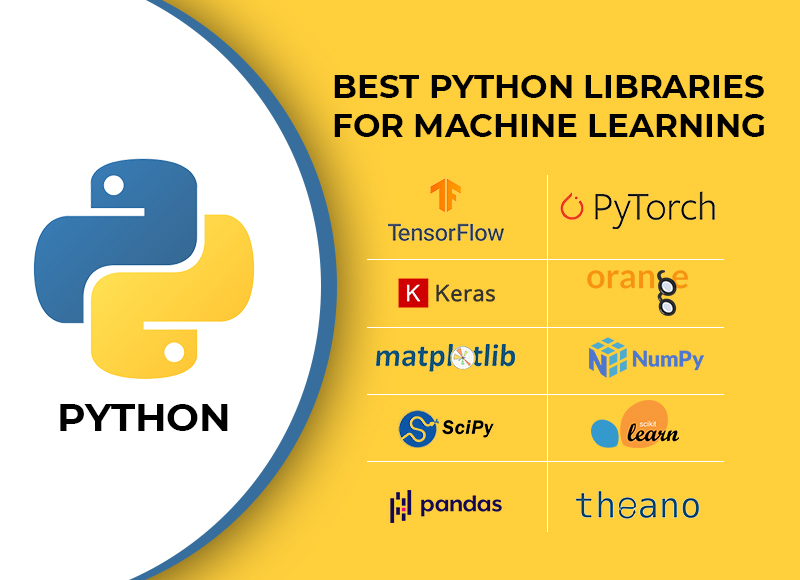Python machine learning library online
Python machine learning library online

Here's a detailed overview of popular Python machine learning libraries that are available online:
1. scikit-learn

One of the most widely used and well-established machine learning libraries, scikit-learn is a free software project providing simple and efficient tools for data mining and data analysis. It offers a range of algorithms for classification, regression, clustering, dimensionality reduction, model selection, and more.
2. TensorFlow
TensorFlow is an open-source software library for numerical computation, particularly well-suited for large-scale Machine Learning (ML) computations. Its primary use is in the field of Artificial Intelligence (AI). It was originally developed by the Google Brain team.
3. Keras
Keras is a high-level neural networks API that can run on top of TensorFlow or Theano. It provides an interface for building and evaluating deep learning models, including convolutional networks, recurrent networks, autoencoders, and more.
4. OpenCV
OpenCV (Open Source Computer Vision Library) is a library containing various implementations of computer vision algorithms in C++ and Python. OpenCV includes tools that can help you with tasks such as image processing, object recognition, and gesture control.
5. PyTorch
PyTorch is an open-source machine learning library developed by Facebook's AI Research Lab (FAIR). It provides a simple and flexible way to build and train neural networks, with strong support for dynamic computation graphs and automatic differentiation.
6. SciPy
SciPy is a free and open-source Python library designed for scientific and engineering applications. It includes modules for optimization, linear algebra, integration, statistics, and many other areas of computational science.
7. NLTK (Natural Language Toolkit)
NLTK is a comprehensive library that provides tools for natural language processing tasks like tokenization, stemming, tagging, parsing, and semantic reasoning.
8. gensim
Gensim is a Python library designed specifically for topic modeling and document similarity analysis. It can be used to analyze large volumes of text data and extract meaningful insights from it.
9. PyMC3 (Python Markov Chain)
PyMC3 is an open-source Python library that allows you to create, sample from, and manipulate probabilistic models. It's particularly useful for Bayesian statistics and machine learning.
10. Statsmodels
Statsmodels is a Python library providing statistical analysis tools to help you analyze data and understand the underlying patterns. It includes modules for regression, time series, hypothesis testing, and more.
When selecting the right machine learning library, consider factors like:
The type of problem you're trying to solve (e.g., classification, regression, clustering). The size and complexity of your dataset. Your level of experience with machine learning or programming languages. The desired output format (e.g., numerical predictions, visualizations).Each library has its unique strengths, so it's essential to explore their features and documentation before making a final choice.
Happy learning!
Which library is used for machine learning in Python?

I'd be happy to help!
In the realm of machine learning using Python, there are several excellent libraries that can get the job done. One of the most popular and widely-used libraries is scikit-learn (also known as sklearn). Developed by INRIA and CNRS in collaboration with Google, scikit-learn is a free open-source library that offers a wide range of algorithms for classification, regression, clustering, and more.
Scikit-learn provides a vast array of tools and techniques to tackle various machine learning problems. It includes implementations of popular algorithms such as linear regression, decision trees, random forests, support vector machines (SVMs), neural networks, k-nearest neighbors, and much more. This library is particularly well-suited for tasks involving classification or regression problems with categorical or numerical data.
Another extremely powerful library in the Python machine learning landscape is TensorFlow. Developed by Google, TensorFlow is an open-source software framework that allows developers to implement deep-learning models using a variety of programming languages, including Python. TensorFlow is highly flexible and can be used for both research and production-level applications. It includes built-in support for popular architectures like convolutional neural networks (CNNs) and recurrent neural networks (RNNs), as well as tools for distributed training and deployment.
Other notable Python machine learning libraries include Keras, PyTorch, LightGBM, CatBoost, and XGBoost. Each of these libraries has its unique strengths, weaknesses, and areas of expertise. For instance:
Keras is a high-level neural networks API that provides an easy-to-use interface for building deep-learning models. It's particularly well-suited for beginners who want to quickly build and experiment with different types of neural networks. PyTorch is another popular open-source machine learning library that's particularly well-suited for researchers, as it provides a flexible framework for developing custom neural network architectures. LightGBM is an open-source library focused on gradient-boosting frameworks that can be used for both classification and regression tasks. It's particularly well-suited for large-scale machine learning applications. CatBoost is another gradient-boosting library designed specifically for categorical data, which is often encountered in text-based machine learning applications. XGBoost is a high-performance gradient-boosting library that excels at handling large datasets and complex models.In summary, the choice of Python machine learning library largely depends on specific requirements, such as the type of problem being tackled, the size and complexity of the dataset, the level of expertise, and personal preference.





























